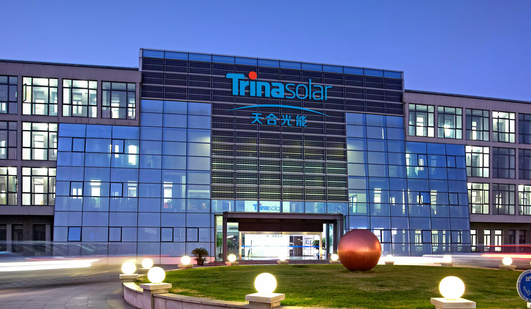- The Swangate project is the first-of-its-kind utilizing Trina Storage’s vertically integrated battery storage product – Elementa
- Trina Storage will provide a full wrapped system solution as well as the EPC scope in consortium with partner G2 Energy. The asset will be owned and operated by Econergy Renewable Energy
PVTIME – Trina Storage, the vertically integrated battery energy storage solution provider, announced today that it has been chosen by Econergy Renewable Energy, a leading investor, developer and operator in the renewable energy industry, to deliver a 50MW/102MWh energy storage system using its latest battery storage product Elementa, located in Yorkshire, Northern England.

Trina Storage will deploy the Swangate project in consortium with G2 Energy, the leading high voltage electrical and civil engineering services provider. Trina Storage and G2 Energy have established a strong partnership having commissioned several utility scale BESS projects in the UK. The joint efforts will also be made this time, supporting Econergy’s firm pipeline of nearly 2.6 GWh storage projects in the UK.
Building on 25 years of PV manufacturing experience, sizeable investments in battery cell R&D as well as strong engineering and service capabilities, Trina Storage is all set to deploy a top-of-the-class battery storage system solution featuring their latest product Elementa. The system will provide a range of system security and reliability services to the UK national grid following its commercial operation expected in early 2024.
Elementa is a flexible, safe, and high-performance grid scale battery energy storage system incorporating Trina’s in-house technology and innovative design. The battery system is optimized for enhanced lifetime, superior system performance and maximized returns. This new technology is packed with proactive safety features such as a unique bi-directional liquid-cooling system and full-map aerosol-based fire suppression system to ensure any risks are eliminated. The tailored 3-level Battery Management System provides real-time monitoring and detection, enabling advanced safety mechanism. The exclusive smart plug-in concept and busbar connections help minimize cable connections and onsite civil works, further adding flexibility to the solution.
Trina Storage, as a global storage leader with extensive deployment experience in the UK storage market, will leverage its robust supply chain advantages, reliable and optimized products, as well as strong local operation and delivery capabilities to support the client.
Terry Chen, Head of Overseas Storage at Trina Storage said,
“We have invested heavily to develop our in-house utility scale LFP battery storage system. The Swangate battery project is the first deal featuring our vertically integrated product Elementa in the UK. As part of this project, Trina Storage will deliver a fully integrated BESS solution with world-class safety standards and capabilities built into every aspect of system design and delivery. We are very pleased to be working with Econergy and G2 Energy to deliver this project successfully and many more in future.
The UK has set exemplary standards integrating massive batteries into the national grid. These grid assets are enhancing system flexibility, improving stability and ultimately paving way for more robust and reliable energy infrastructure in the UK. We’re delighted to be contributing to this growth story and moving towards a cleaner, sustainable and energy secure world.”
Eyal Podhorzer, Econergy’s CEO said:
“We are delighted to have secured the EPC agreement with Trina and G2 for our Swangate storage project in the UK. This is the first storage project in Econergy’s pipeline which has reached this stage, marking a significant milestone for the company.
“Trina Storage is a global leader in the renewable energy industry, with over 500 MW of connected storage projects and over 1GWh under construction globally. We’re pleased to be strengthening our partnership with them, as well as G2, to support the development of Econergy’s renewable pipeline.”











